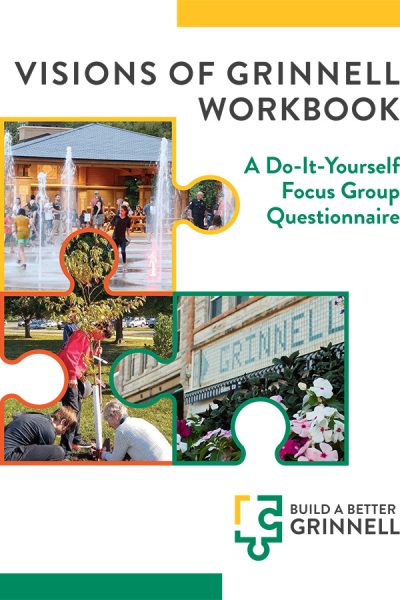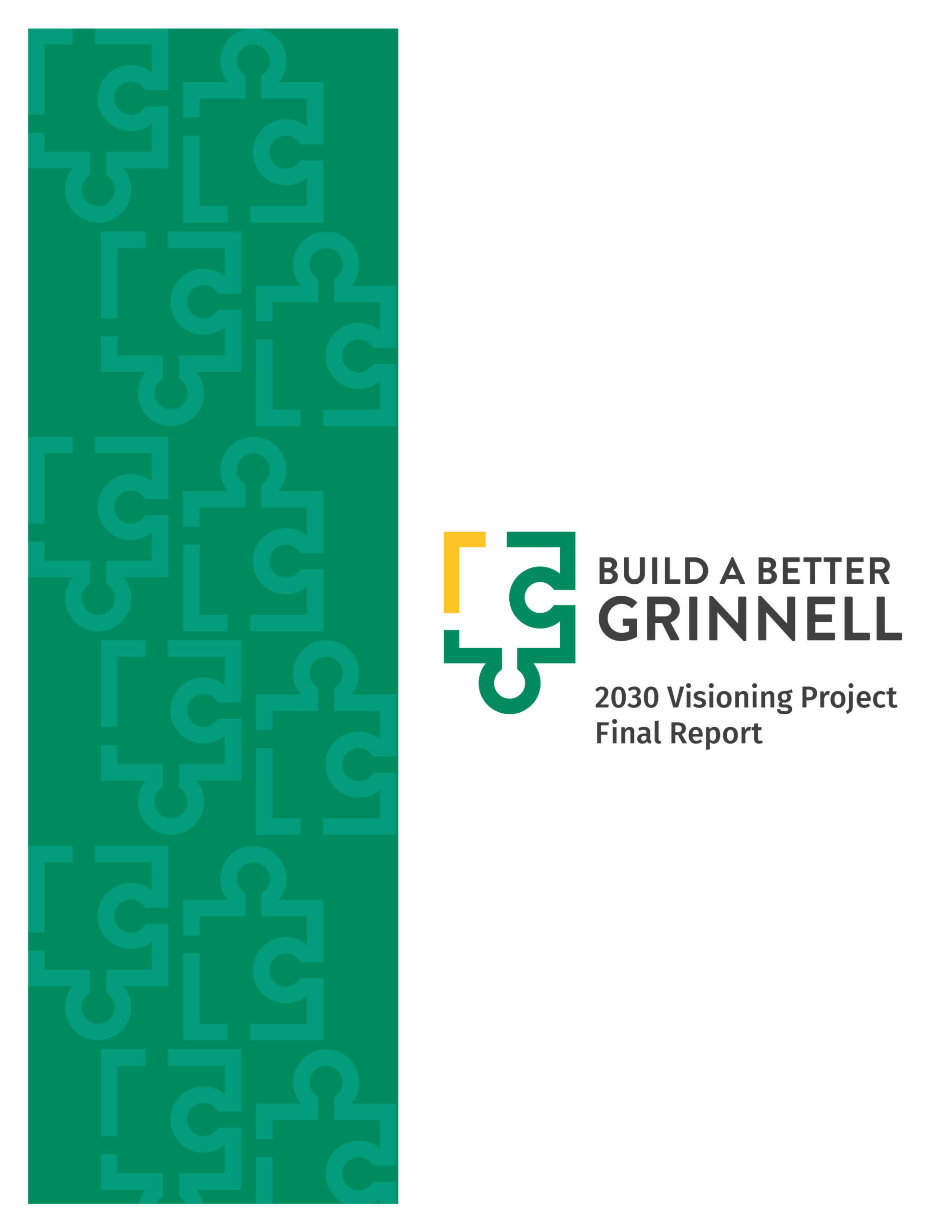View Community Data
PHASE 1: Needs From The Community Visions Survey
PHASE 2: Methodology For Prioritization
The Prioritization Process
- Improve Drinking Water Quality
- More Restaurant Variety
- Expand Mental Healthcare Services
- Improve K-12 Buildings & Infrastructure
- Improve Roads & Road Maintenance
- Reduce Racism
- Higher Wages &/or Lower Prices
PHASE 3
The final research phase focused on gaining more detailed information from the community to better understand the prioritized issue. This was done through 69 community sessions, including public listening sessions, focus groups, and community hosted discussions. Listening sessions were held in Grinnell’s Drake Community Library and open to the public on a walk-in basis. Focus groups, also primarily scheduled for the library, were each limited to six participants and required signing up. Attendees at these were paid. Community hosted discussions were held by six individuals from lower-income households who were hired to conduct up to seven focus groups each (one on each issue) with their friends and family.
What the Phase 3 Reports Are, What They Are Not
Our primary goal with each report is to provide the community with information to help stakeholders make informed choices and address the prioritized need. At its core, this is a participatory community-based needs assessment. It is an effort to bring in diverse voices from throughout the community of persons who live, work, or rely on Grinnell for resources, together with input from individuals who have worked in the community to service the needs in question or otherwise might be considered experts. Our goal in seeking community-wide input is both to empower community members to participate in community development, as well as to better understand the experiences surrounding each identified need, how the need affects members of the community, what underlying causes people see leading to the issue, the obstacles they personally face and that the broader community may face in resolving the issue or ameliorating its impacts, ideas they have for what can and should be done, and what they see as strengths and assets in the community that may contribute to solutions.




